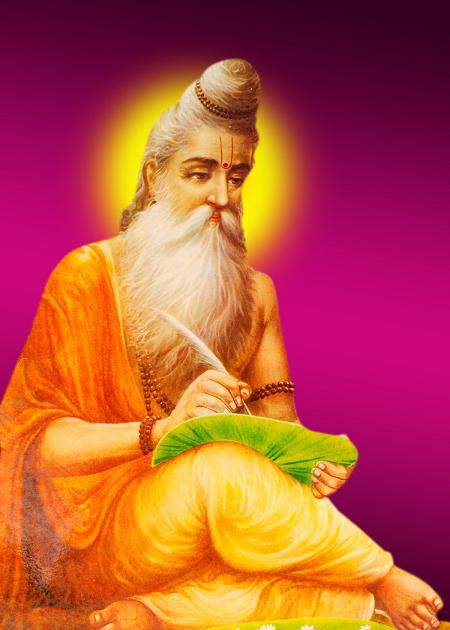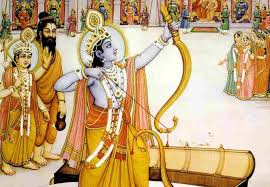Introduction to Ratna the Robber
Once upon a time, a robber named Ratna lived in a forest. He used to rob people and also kill them, causing great fear among travelers. No one dared to walk in that forest alone.
Encounter with Narada Muni
One day, Narada Muni was passing through the forest. Ratna came forward to attack him. While most people would run for their lives upon seeing Ratna, Narada Muni faced him fearlessly.
Narada Muni asked Ratna why he engaged in such cruel deeds, pointing out that killing and robbing people were sinful actions. He urged Ratna to stop his evil deeds.
Ratna’s Justification
Ratna replied that he committed these acts to support his family, which included his old parents, his wife, and two children. He wondered how he would provide for them if he stopped his crimes.
Narada Muni responded, “To look after your family, you must work hard, but no one in your family will pay for your bad deeds. You will have to pay for them yourself.”
Seeking Family’s Approval
Ratna found this strange and insisted that since he was committing these bad deeds for their benefit, his family must share the consequences. Narada Muni suggested that Ratna go and ask his family if they were willing to bear the burden of his sins.
Family’s Response
Ratna tied Narada Muni to a tree and went home to ask his parents. They told him, “Son, when you were small and young, we brought you up until you were big enough to look after yourself. Now we are both old. It is your duty to look after us. Whatever will be the fruits of your actions, you yourself would reap.”
Next, Ratna approached his wife and asked, “I am supporting you with all necessary wealth, clothes, and jewelry. Are you prepared to suffer in hell in the next life for the sins I am committing for your maintenance?” His wife replied, “It is your duty to look after me. Whatever will be the fruits of your actions, you yourself would reap. I will not go to hell and suffer for you.”
Finally, Ratna turned to his children, hoping for a different answer. He said, “My dear children, I have given my life for you. I am maintaining and supporting you with whatever you need. Are you prepared to suffer in hell in the next life for the sins I am committing for your maintenance?” His children responded, “No way, Father! It is your duty to look after us; you are our father. Whatever will be the fruits of your actions, you yourself would reap. We have life to live, not to go to hell and suffer for you!”
Realization and Transformation
Hearing the responses from his parents, wife, and children, Ratna realized his mistakes. He set Narada Muni free and fell on his knees, asking for forgiveness. Narada Muni advised him to follow the path of goodness.
Becoming Valmiki Muni
Ratna began to follow his dharma and transformed his life. Later on, Ratna, the former robber, became a great saint known as Valmiki Muni.
Moral of the Story
This story teaches us the importance of personal responsibility for our actions. No one else can bear the consequences of our deeds. It also highlights the potential for transformation through realization and the guidance of wise counsel.
Lessons to be Learned
- Personal Accountability: Each individual is responsible for their own actions and the consequences that follow. Blaming others for our wrongdoings does not absolve us of our guilt.
- Transformation is Possible: No matter how sinful or wrong one’s past actions may be, there is always a possibility for transformation if one sincerely repents and seeks a better path.
- The Power of Guidance: Wise counsel from a knowledgeable and compassionate person can be life-changing. Narada Muni’s intervention was crucial in transforming Ratna.
- Duty and Responsibility: Supporting and taking care of one’s family is important, but it should not come at the cost of ethical and moral values.
- Seeking Forgiveness: Admitting one’s mistakes and seeking forgiveness is the first step towards redemption and personal growth.
- Impact of Good Association: The company of a saintly person like Narada Muni can inspire significant positive changes in one’s life.
- Value of Dharma: Following one’s dharma, or righteous duty, leads to true fulfillment and peace.
By reflecting on these lessons, we can strive to lead a life of integrity, responsibility, and continuous self-improvement.



